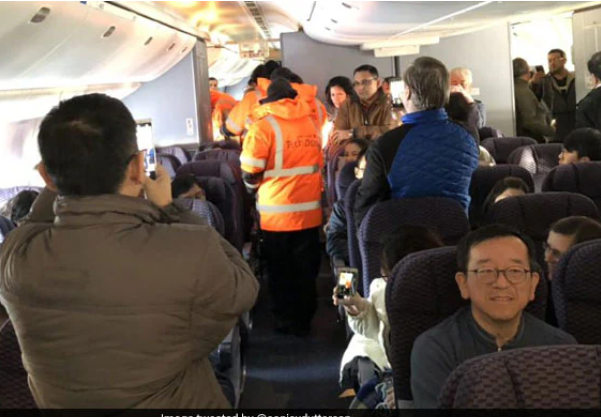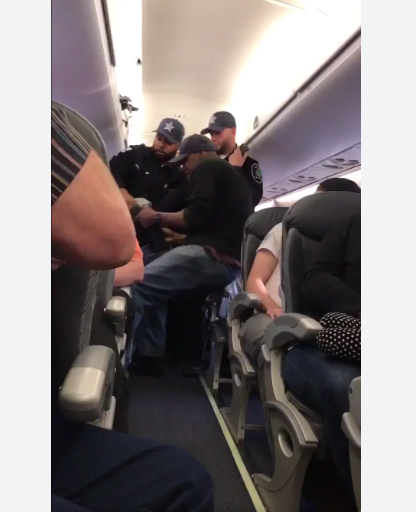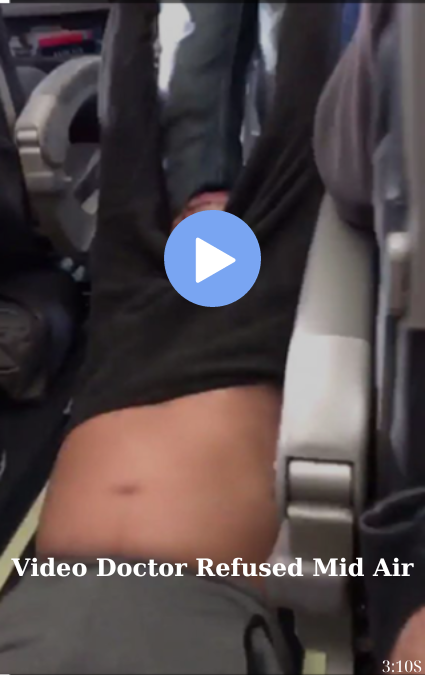In the age of instant sharing and global connectivity, a recent mid-air incident has become the focal point of a heated online debate, thrusting the ethical considerations and professional responsibilities of a medical doctor into the spotlight. The controversial video, capturing the unfolding events during a long-haul flight, depicts a 30-year-old internal medicine hospitalist’s decision not to assist a distressed passenger in a moment of crisis. This incident has ignited discussions on the delicate balance between personal choices, professional obligations, and societal expectations, unraveling a complex tapestry of moral and ethical dilemmas faced by medical professionals beyond the confines of their formal work environments. Join us as we delve into the details of this contentious video, unraveling the layers of the unfolding debate surrounding a doctor’s refusal to intervene during a mid-air emergency.

Factors Influencing the Doctor’s Decision
The video reveals that the doctor’s choice was significantly influenced by his state of intoxication, a factor he openly admits to in his social media post recounting the experience. The admission of alcohol consumption both before and during the flight raises complex questions about the balance between personal time and professional obligations, particularly when immediate actions can have profound consequences.
Alcohol Consumption and Impaired Judgment
The pivotal factor influencing the doctor’s decision not to intervene during the mid-air emergency was his admission of alcohol consumption before and during the flight. This revelation introduces a critical dimension to the incident, as alcohol is known to impair judgment, cognitive functions, and overall decision-making abilities. The doctor’s acknowledgment of his intoxicated state reflects a self-awareness of the potential impact of alcohol on his ability to think clearly and act responsibly in a medical emergency.

Ethical Considerations and the Principle of “Do No Harm”
The doctor’s justification for his inaction revolves around the core principle of medical ethics – “do no harm.” While medical professionals are typically expected to provide assistance in emergencies, the doctor weighed the potential risks of intervening against the benefits. In his compromised state, he believed that attempting to offer medical assistance could result in more harm than good. This ethical dilemma underscores the complexity of navigating professional responsibilities in situations where personal choices may compromise effective medical intervention.
Professional Limits and Understanding Personal Capacity
The doctor’s decision not to intervene demonstrates an understanding of his professional limits in that particular moment. Recognizing his compromised state, he opted to refrain from providing medical assistance, emphasizing the importance of self-awareness and acknowledging when personal conditions may impede effective intervention. This aspect of the incident sheds light on the responsibility of medical professionals to assess their own capacities and refrain from actions that could potentially exacerbate the situation.

Potential Risks and Consideration of Alternatives
The doctor’s consideration of potential risks associated with his intervention highlights a nuanced perspective. Instead of blindly adhering to the expectation of immediate assistance, he weighed the circumstances and contemplated potential negative outcomes. By choosing not to intervene, he may have hoped that another passenger with medical expertise, unimpaired by intoxication, would step forward. This aspect of the decision-making process underscores the importance of considering alternatives and assessing the overall situation in emergency scenarios.
Societal Expectations and Passenger Reactions
The reaction of fellow passengers, particularly the woman sitting next to the doctor, adds a societal dimension to the incident. Her disbelief and condemnation suggest societal expectations regarding the constant availability of medical professionals, irrespective of external factors. This societal perspective may contribute to the pressures faced by doctors outside their formal work environments, emphasizing the need for public awareness regarding the potential impact of personal choices on professional responsibilities.
Justification for Inaction
The doctor justified his decision on the grounds of potential harm, acknowledging his impaired state due to alcohol consumption. This aligns with the fundamental medical ethics principle of “do no harm.” The discussion surrounding his choice delves into the responsibility of medical professionals to discern when their interventions may prove counterproductive and the societal assumption that doctors are always available, regardless of circumstances.
@drsiyabmd Doctor declines to help in inflight emerengency. #doctor #reddit #inflightemergency #medicalemergency #CapCut ♬ Suspense, horror, piano and music box – takaya
Understanding Professional Limits
The doctor’s decision showcases a nuanced understanding of his professional limits in that specific moment. Opting not to intervene, he expressed hope that another passenger with medical expertise might step in or that the cabin crew, guided by ground-based medical professionals, could handle the situation more effectively. This highlights the doctor’s awareness of the potential risks associated with his involvement in his intoxicated state.
Reactions of Fellow Passengers
The video captures the immediate reactions of fellow passengers, with particular focus on a woman seated next to the doctor. Her response of disbelief and condemnation, holding the doctor responsible for potential negative outcomes, sheds light on societal expectations regarding the constant availability of medical professionals. This reaction also emphasizes the potential misunderstanding of the risks involved, given the doctor’s state.
Deeper Implications and Online Debate
The incident has sparked a broader online debate, delving into the intricate dynamics of public perception and the responsibilities imposed on medical professionals outside their formal work environments. The discussion explores the high stakes involved in emergency situations and the moral and ethical dilemmas professionals navigate in their everyday lives, especially when facing unprecedented challenges.
Conclusion
As the controversy unfolds, the video serves as a catalyst for a robust discourse on the expectations placed on medical professionals, the challenges they encounter outside traditional healthcare settings, and the ethical considerations that govern their actions. The incident prompts reflection on the complex interplay between personal choices, professional responsibilities, and societal assumptions in the realm of emergency medical interventions.
